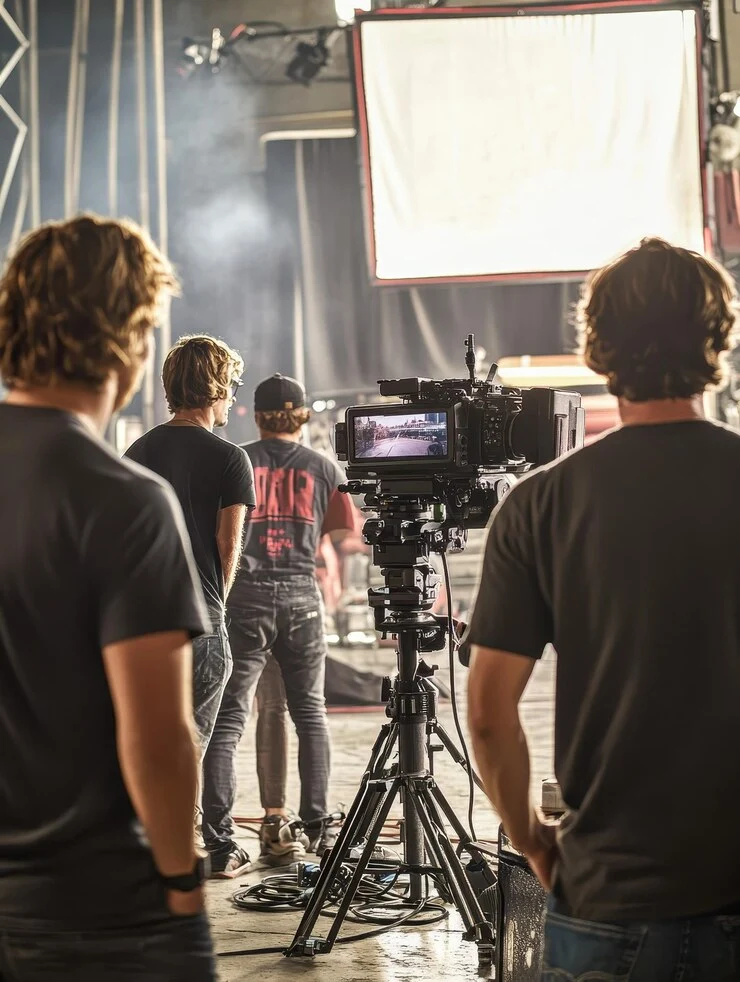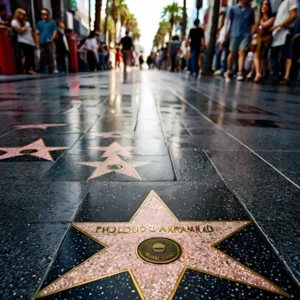Timothée Chalamet: how he became the face of the new generation of cinema. Timothée Chalamet didn’t just arrive in Hollywood — he defined a new wave of it. With angular cheekbones, effortless charisma, and a startling emotional range, he broke through a cinematic landscape saturated with typecast roles and formulaic leads. What sets him apart isn’t just talent.
It’s his ability to balance the mainstream with the intimate, becoming the rare actor who can headline a $165 million sci-fi blockbuster like Dune while still embodying the vulnerability of a coming-of-age romance like Call Me by Your Name.
Redefining the Male Lead: Sensitivity Over Swagger
Hollywood has a long history of presenting masculinity as stoic, dominant, and emotionally distant. Chalamet quietly subverted that. Whether as the tender-hearted Laurie in Greta Gerwig’s Little Women or the tortured Henry V in The King, his portrayals have dismantled the idea that strength comes from suppression. Instead, he shows that there is power in openness — and that vulnerability doesn’t weaken a character, it makes them unforgettable.
His influence has extended far beyond his roles. Casting directors have openly acknowledged that Chalamet helped reframe what producers look for in a male lead — more introspection, more range, and fewer stereotypes. For many, he marked a turning point: proof that the next generation of cinema could be as emotionally nuanced as it is visually rich.
Crossing Borders: How Chalamet Balances Art and Blockbusters
Timothée Chalamet’s ascent wasn’t built on a single role — it was built on strategic and daring choices. After Call Me by Your Name, he could’ve leaned exclusively into indie roles, as many young actors do. But Chalamet saw the long game. He took on Beautiful Boy (2018), a gut-wrenching addiction drama opposite Steve Carell, earning a BAFTA nomination for Best Supporting Actor and further proving his emotional depth.
Then came the pivot: Denis Villeneuve’s Dune. In portraying Paul Atreides, Chalamet took on a sci-fi legacy few actors would dare touch. This wasn’t just any blockbuster — it was the modern revival of one of the most ambitious sagas in cinema. And yet, he didn’t vanish under the film’s grandeur. He grounded it with human complexity, becoming the spiritual anchor of a galaxy-spanning epic. According to The Guardian, his performance gave Dune a “mythic but mournful” center.
A Regular in Auteur Circles
One defining trait of Chalamet’s career is his enduring collaborations with celebrated directors. His work with Greta Gerwig in both Lady Bird and Little Women showcased his capacity for tender nuance and satirical timing. Gerwig herself has noted in interviews that casting him feels “like unlocking a character’s soul.”
In Wes Anderson’s The French Dispatch, Chalamet embraced a more stylized, eccentric realm, proving that even within strict visual aesthetics, he could inject soul into symmetry. These collaborations aren’t accidental. They signal a deep mutual respect and an awareness that good art isn’t just about range — it’s about choosing projects that align with vision, not just visibility.
Style as Signature: A Cinematic Presence Beyond the Screen
You can’t separate Timothée Chalamet from the cultural moment he inhabits — and a big part of that is his influence outside of film. Red carpet appearances have become part of his artistic statement. Whether it’s a Haider Ackermann backless tuxedo at the Venice Film Festival or Louis Vuitton harnesses at the Oscars, Chalamet wears fashion like a role: expressive, unpredictable, iconic.
But this isn’t vanity — it’s branding through authenticity. Unlike carefully manufactured celebrity images, his public persona feels fluid, intelligent, and often vulnerable. He’s never been afraid to be unconventional, and in doing so, redefined masculinity in Hollywood. This has made him a symbol for Gen Z viewers who crave individuality over image.
Relatability in an Era of Distance
In an age where celebrity culture often feels manufactured and remote, Chalamet resonates with fans not because he feels untouchable, but because he doesn’t. Despite global recognition, his interviews remain unpolished and earnest. This naturalism has turned him into one of the most memeable yet most respected actors working today.
His popularity on platforms like TikTok and Twitter – X isn’t fueled by viral antics — it’s fueled by moments of genuine personality in press junkets or behind-the-scenes clips. The way he speaks about craft, fear, and even doubt doesn’t alienate fans — it brings them closer. That closeness is rare in modern stardom.
Upcoming Roles That Could Seal the Legend
Chalamet’s next slate combines risk and prestige in equal measure. His playful turn as a young Willy Wonka in Wonka (2024) proved he can anchor a broad-audience musical without compromising nuance. Now the conversation shifts to James Mangold’s long-gestating Bob Dylan biopic — tentatively titled A Complete Unknown — where Chalamet will sing live and chart Dylan’s electric-guitar revolution. Mangold confirmed to Deadline that filming begins late 2025, positioning the project as an awards-season centerpiece that could earn Chalamet his first Oscar win.
Meanwhile, Denis Villeneuve has hinted at adapting Dune Messiah to complete Paul Atreides’ arc. If green-lit, it places Chalamet at the heart of a trilogy that blends arthouse aesthetics with blockbuster scale — a fusion few actors are trusted to carry.
📚 External Link:
Follow the latest on A Complete Unknown via Deadline’s production tracker.
Building Power Behind the Camera
Like many modern icons, Chalamet is moving toward creative control. Industry insiders report he’s establishing a production banner focused on “director-driven features under $30 million,” aimed at giving emerging filmmakers the backing he enjoyed early on. If successful, he’ll shift from being a symbol of new-school acting to a catalyst for new-school filmmaking.
Longevity in an Attention-Span Economy
Can any star stay relevant amid TikTok turnover rates? Chalamet’s strategy appears to be continuous reinvention rather than saturation. He rarely accepts franchise offers outside Dune, maintains a modest social-media presence, and lets roles — not gossip — shape headlines.
💬
Which upcoming role excites you more: the poetic intensity of Bob Dylan or the prophetic weight of Paul Atreides?
When Talent Meets Timing
Timothée Chalamet didn’t merely catch a cultural wave; he helped create it. By fusing indie sensitivity, blockbuster magnetism, and fearless self-expression, he’s become the blueprint for twenty-first-century stardom. As his résumé grows, so does the likelihood that future actors will cite him as the moment they realized cinema could still feel brand-new.



